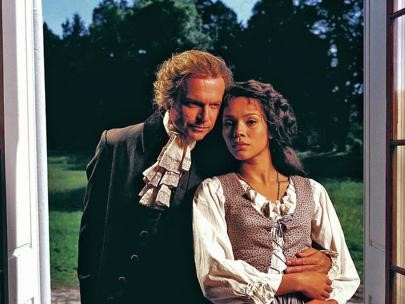Authors:
Historic Era: Era 3: Revolution and the New Nation (1754-1820s)
Historic Theme:
Subject:
Fall 2008, Summer 2025 | Volume 58, Issue 5


Authors:
Historic Era: Era 3: Revolution and the New Nation (1754-1820s)
Historic Theme:
Subject:
Fall 2008, Summer 2025 | Volume 58, Issue 5

In the years since the publication of my book Thomas Jefferson and Sally Hemings: An American Controversy, I have traveled throughout the United States and overseas talking about them—and life and slavery at Monticello. Writers are, in the main, solitary creatures. Or, at least, the process of writing forces us into solitude for long stretches of time; I find it refreshing and gratifying to meet people who have read one’s work (or plan to) and have questions, observations, and opinions about it. In all the venues I have visited, from Houston to Stockholm, one question always arises: Did they love each other?
To call this a loaded question does not begin to do justice to the matter, given America’s tortured racial history and its haunting legacy. To be on the receiving end of that question is to be thrown into a large minefield. It is even worse for someone who is considered an expert on Hemings and Jefferson. You wrote the book about them, didn’t you?
Part of a historian’s job is to try to navigate the gap stretching between those who lived in the past and those who live today, especially pointing out the important differences. At the same time, it remains equally important to recognize and give due consideration to those points of commonality that the past and the present share. While there’s truth in the old saying that the past is a foreign country, anyone visiting a foreign land also encounters many familiar sights, rituals, and behaviors, because the basic realities of the human condition remain the same.
See the essay in the June 1972 American Heritage, "The Great Jefferson Taboo" by Fawn Brody, which reignited the controversy over Jefferson and Hemings.
What does this mean for Sally and Thomas, the enslaved woman and the man who owned her? Their legal relationship to one another—and the world they shared—is strange to us today. Certainly, people suffer oppression today: many work for little or no pay, while countless women and children are forced into prostitution. Yet this cannot match the horrific nature of America’s racially-based chattel slavery, in which a person’s children were enslaved in perpetuity, unless an owner decided to give up his or her ownership of that person. What love could exist between a man and a woman enmeshed in—and negotiating the rules of—that world? And what difference does it make if they “loved” each other? Why are members of my audience so intent on knowing that?
The question about Hemings and Jefferson, of course, does not arise in a vacuum. We modern people have a history, so to speak, with love, especially of the romantic kind. Not other human emotion excites such passionate interest and longing, or gives rise to such high expectations at all levels of society. Songs tell us that “love” is “the answer” to almost